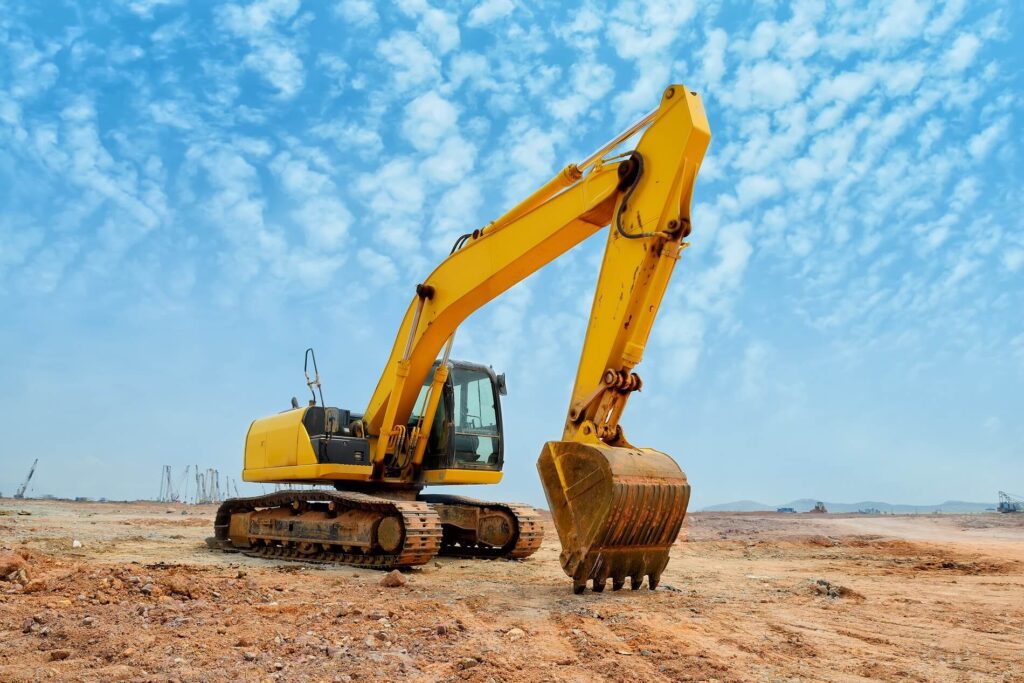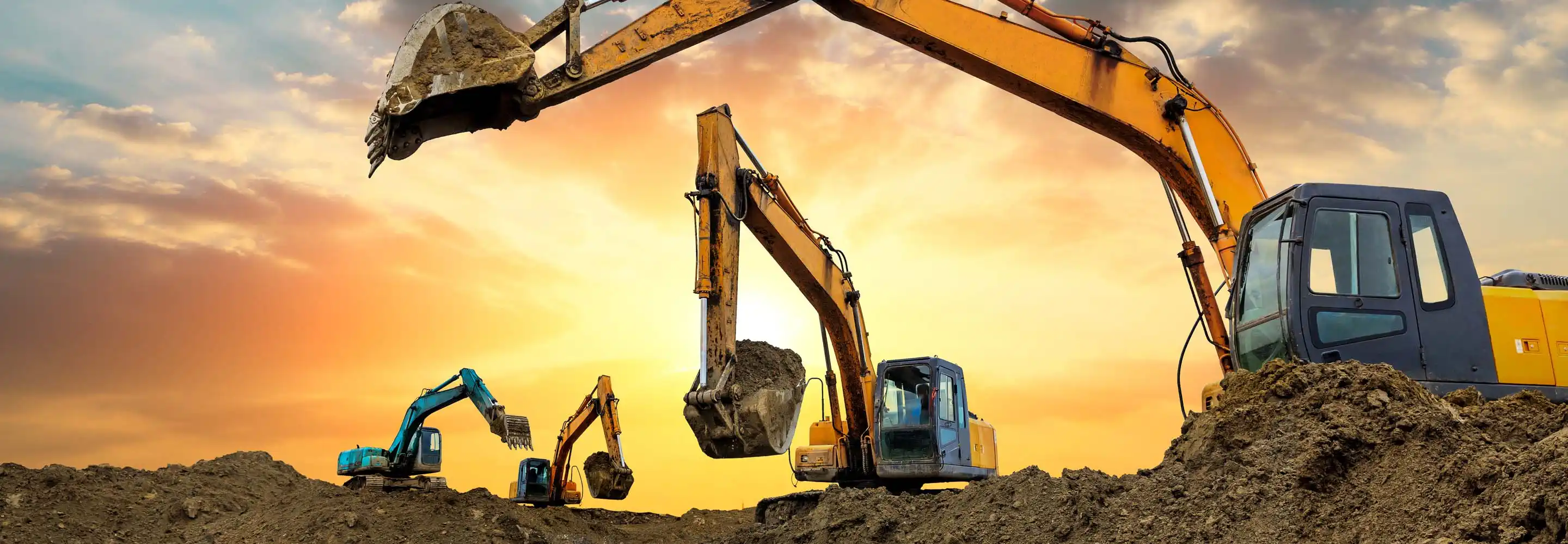Forklift Rental in Tuscaloosa AL: Versatile Training Solutions for Your Requirements
Forklift Rental in Tuscaloosa AL: Versatile Training Solutions for Your Requirements
Blog Article
Exploring the Financial Conveniences of Leasing Building Devices Contrasted to Having It Long-Term
The decision in between owning and renting out construction devices is crucial for monetary monitoring in the market. Leasing deals prompt cost financial savings and operational flexibility, permitting companies to allocate resources more successfully. In comparison, ownership features significant lasting financial dedications, including upkeep and devaluation. As contractors weigh these choices, the influence on money circulation, job timelines, and modern technology gain access to comes to be progressively considerable. Comprehending these subtleties is important, particularly when thinking about how they line up with details task requirements and economic strategies. What factors should be focused on to make certain optimum decision-making in this facility landscape?

Expense Comparison: Leasing Vs. Owning
When evaluating the financial ramifications of having versus renting out building and construction tools, a comprehensive cost comparison is necessary for making educated choices. The option in between leasing and owning can dramatically impact a business's bottom line, and recognizing the linked costs is crucial.
Leasing building equipment commonly entails reduced upfront prices, enabling companies to allocate capital to various other operational demands. Rental agreements usually include flexible terms, allowing firms to access advanced machinery without long-lasting dedications. This versatility can be especially helpful for short-term tasks or rising and fall workloads. However, rental prices can accumulate with time, potentially exceeding the expense of possession if devices is required for a prolonged duration.
On the other hand, owning building equipment needs a significant initial financial investment, in addition to continuous prices such as insurance policy, devaluation, and financing. While ownership can bring about long-term cost savings, it also binds resources and may not supply the same degree of adaptability as leasing. Furthermore, possessing devices requires a commitment to its usage, which might not constantly align with job needs.
Eventually, the choice to own or rent out should be based upon an extensive analysis of details job demands, monetary capacity, and long-term strategic goals.

Maintenance Responsibilities and expenditures
The option in between possessing and leasing construction devices not only entails monetary factors to consider but additionally includes continuous maintenance expenses and obligations. Having equipment calls for a substantial dedication to its upkeep, that includes routine assessments, repairs, and prospective upgrades. These duties can quickly gather, resulting in unforeseen costs that can stress a budget plan.
On the other hand, when renting out equipment, upkeep is commonly the obligation of the rental business. This plan permits service providers to prevent the monetary worry related to deterioration, along with the logistical challenges of organizing repairs. Rental arrangements frequently include arrangements for maintenance, implying that service providers can concentrate on completing tasks rather than stressing over equipment problem.
Moreover, the varied variety of tools readily available for rental fee allows companies to choose the most recent versions with innovative modern technology, which can enhance performance and performance - scissor lift rental in Tuscaloosa Al. By choosing services, services can avoid the long-term liability of tools devaluation and the connected upkeep frustrations. Eventually, reviewing upkeep costs and obligations is essential for making a notified choice regarding whether to rent or have building tools, dramatically affecting overall task expenses and operational performance

Devaluation Influence On Possession

A substantial factor to think about in the choice to have building equipment is the impact of depreciation on overall possession prices. Depreciation stands for the decrease in value of the devices with time, affected by aspects such as use, damage, and improvements in innovation. As tools ages, its market price lessens, which can dramatically impact the owner's monetary setting when it comes time to sell or trade the equipment.
For building and construction business, this devaluation can convert to substantial losses if the equipment is not utilized to its maximum possibility or if it comes to be out-of-date. Owners must account for devaluation in their monetary projections, which can bring about higher total prices contrasted to renting. In addition, the tax effects of devaluation can be complicated; while it might offer some useful site tax benefits, these are frequently offset by the reality of reduced resale value.
Ultimately, the problem of depreciation emphasizes the importance of comprehending the long-term monetary commitment entailed in owning building and construction equipment. Business should meticulously assess just how commonly they will make use of the equipment and the possible financial influence of devaluation to make an educated decision concerning possession versus renting.
Monetary Versatility of Leasing
Renting out building and construction tools uses significant economic versatility, permitting firms to allocate resources extra effectively. This flexibility is specifically crucial in a market identified by find out fluctuating project demands and differing work. By deciding to rent, companies can prevent the significant resources outlay required for buying tools, maintaining capital for other functional demands.
Additionally, renting devices allows business to customize their devices selections to details task requirements without the long-term commitment related to ownership. This indicates that organizations can conveniently scale their tools supply up or down based on existing and awaited project requirements. Consequently, this flexibility lowers the threat of over-investment in equipment that might end up being underutilized or outdated with time.
One more economic benefit of renting out is the capacity for tax benefits. Rental settlements are often thought about operating budget, enabling instant tax deductions, unlike devaluation on owned equipment, which is spread over a number of years. scissor lift rental in Tuscaloosa Al. This instant expenditure recognition can additionally boost a firm's money placement
Long-Term Project Considerations
When assessing the long-lasting demands of a building and construction organization, the choice between leasing and possessing tools ends up being extra complex. For jobs with extended timelines, buying equipment might appear advantageous her comment is here due to the capacity for reduced general prices.
The building and construction market is developing quickly, with new devices offering enhanced efficiency and security features. This adaptability is especially useful for services that take care of diverse projects calling for different types of tools.
Moreover, financial security plays an essential role. Owning tools frequently entails substantial capital expense and devaluation issues, while renting out permits more foreseeable budgeting and money flow. Ultimately, the selection in between possessing and renting out must be straightened with the strategic goals of the building and construction business, taking right into account both current and anticipated job demands.
Conclusion
In conclusion, renting out construction tools offers considerable monetary advantages over long-lasting possession. Inevitably, the choice to rent out rather than own aligns with the dynamic nature of building and construction jobs, enabling for versatility and accessibility to the latest equipment without the economic burdens linked with ownership.
As equipment ages, its market value decreases, which can substantially affect the owner's financial position when it comes time to trade the equipment or sell.
Leasing construction equipment uses significant economic flexibility, permitting business to allot resources a lot more effectively.In addition, renting equipment enables firms to customize their devices choices to specific task demands without the long-lasting commitment linked with possession.In conclusion, renting out building equipment offers significant monetary advantages over lasting ownership. Inevitably, the choice to rent instead than own aligns with the dynamic nature of building and construction jobs, allowing for versatility and access to the latest devices without the financial worries connected with ownership.
Report this page